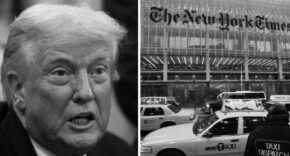Mike Duggan, the mayor of Detroit since 2014, has overseen one of the most remarkable urban comebacks in modern history. When he took office, Detroit was the epitome of urban decline, struggling with bankruptcy, high crime rates, and a crumbling infrastructure. Duggan’s leadership not only stabilized the city’s finances but also led to a significant drop in crime and a dramatic rise in property values. His record has earned him praise as one of the most effective big-city mayors in America. However, Duggan recently made a bold political move that has sent shockwaves through the political landscape—he left the Democratic Party and announced his candidacy for Michigan governor as an independent. This decision stems from his deep frustration with hyper-partisanship and his belief that real progress can only be made outside the current two-party system.
Detroit’s Revival: Duggan’s Impact on the Motor City
When Duggan took office in 2014, Detroit was in the midst of the largest municipal bankruptcy in U.S. history. The city had $18 billion in debt, and its once-thriving downtown was in ruins. Property values had plummeted, and crime rates were through the roof. Duggan faced an uphill battle, but he quickly set to work on restoring Detroit to its former glory.
One of Duggan’s earliest and most significant accomplishments was stabilizing the city’s finances. When he assumed office, Detroit’s municipal bonds were considered junk, and the city was on the brink of financial collapse. Under Duggan’s leadership, the city’s financial situation improved dramatically. Over the course of his tenure, Detroit’s bond ratings were upgraded ten times. Duggan’s approach to fiscal management was pragmatic and results-oriented. As of 2025, the city holds a $550 million reserve fund, and its budget has been balanced for eleven consecutive years.
Perhaps even more impressive was Duggan’s ability to tackle the issue of crime. Under his leadership, Detroit saw a dramatic drop in crime rates, particularly violent crimes. Homicides, which had reached alarming levels in previous years, fell to their lowest number since 1965. Duggan credits initiatives like Project Green Light, a public-private partnership that helps businesses in high-crime areas install security cameras, for playing a key role in improving public safety. The city’s homicide total dropped by 19% from 252 in 2023 to 203 the following year. Carjackings and nonfatal shootings also decreased significantly, by 30% and 45% respectively.
Duggan also focused on blight removal, a major issue facing Detroit. The city had thousands of abandoned homes and vacant lots, which contributed to its image as a ghost town. In his first term, Duggan worked to demolish 45,000 abandoned homes and sold thousands of vacant lots to residents, who transformed them into gardens, playgrounds, and other community assets. As a result, Detroit’s neighborhoods began to show signs of revitalization. Over 70% of the property value gains in the past decade have gone to long-time Black homeowners, helping to build wealth in the community.
Duggan’s Break with the Democratic Party
Despite his successes, Duggan grew increasingly disillusioned with the partisan politics that have come to dominate American politics. In December 2024, Duggan made the surprising announcement that he was leaving the Democratic Party and would run for Michigan governor as an independent. His decision to leave the party was based on his belief that hyper-partisanship is preventing meaningful progress in both Detroit and Michigan as a whole.
Duggan has been a lifelong Democrat, but he criticized the direction of the party, saying, “The identity of the Democratic Party is we hate Republicans in general and we hate Donald Trump specifically. That is the only unifying principle of the Democratic Party today.” Duggan also expressed frustration with the left wing of his party, which he said had never been a fan of his pro-business policies that helped revitalize Detroit. He argued that the party’s inability to reach consensus on critical issues made it impossible to get anything done.
In his campaign for governor, Duggan has pledged to bring people together, transcending partisan divisions. His goal is to create a government that works for the people, not for political parties. “The left wing of the Democratic Party has never been a fan of mine,” Duggan remarked. He went on to explain that, as a Democrat, he felt he wouldn’t be able to accomplish much in the current political climate. “If I were to run as a Democrat, I wouldn’t have been able to get anything done,” he said.
Duggan’s decision to run as an independent reflects a growing disillusionment with the two-party system, which many voters see as increasingly ineffective. According to recent polls, more Americans are registering as independents than ever before, frustrated by the polarized politics that dominate the political landscape. Duggan’s campaign is an attempt to offer voters another choice, one that he believes will be more focused on solving problems than on partisan bickering.
The Future of Duggan’s Campaign and Detroit’s Recovery
Duggan’s decision to leave the Democratic Party and run for governor has raised questions about his future and the future of Detroit. His campaign has gained significant traction, especially in the Detroit metropolitan area, where Duggan’s popularity remains high. He has raised $3.2 million in direct contributions, more than any other candidate in the race. Early polling shows that Duggan is popular in Detroit, but his support drops significantly in other parts of Michigan. To combat this, Duggan plans to focus his campaign efforts on the rest of the state once he leaves office at the end of 2025.
Despite Duggan’s departure from the mayor’s office, many believe that Detroit’s revitalization is here to stay. Duggan has set the city on a path of growth and recovery, and his efforts have laid the foundation for future progress. However, questions remain about whether his successor will be able to maintain the momentum that Duggan has created. “Detroit has definitely revitalized and grown, but it hasn’t reached everywhere,” said City Council President Mary Sheffield. Duggan’s successor will need to focus on ensuring that the benefits of the city’s recovery are felt in all neighborhoods, particularly those that have been left behind in the past.
One of the biggest challenges for Duggan’s successor will be maintaining the city’s economic recovery. Detroit remains heavily dependent on the auto industry, which faces significant challenges in the age of automation and trade wars. Duggan has worked to diversify the city’s economy, attracting new industries like healthcare, fintech, and mobility companies. However, the city still faces significant hurdles, including poverty rates that remain high, particularly among children. Duggan’s successor will need to continue the work of attracting new investment and creating jobs that can lift Detroit’s residents out of poverty.
Conclusion: A Blueprint for Urban Revitalization
Mike Duggan’s leadership in Detroit offers valuable lessons for other cities facing similar challenges. His ability to work across party lines, attract private investment, and prioritize practical solutions has been key to Detroit’s remarkable turnaround. Duggan’s shift away from the Democratic Party is a bold statement about the need for a new political direction, one that puts people ahead of party loyalty. Whether or not Duggan’s independent campaign for governor succeeds, his time as Detroit’s mayor has proven that even the most struggling cities can recover with the right leadership. For Detroit, the future is uncertain, but the foundation for continued growth and revitalization has been firmly established.





